How German is the royal family?
King Charles makes first state visit to Germany, a country with long-held ties to the British monarchy
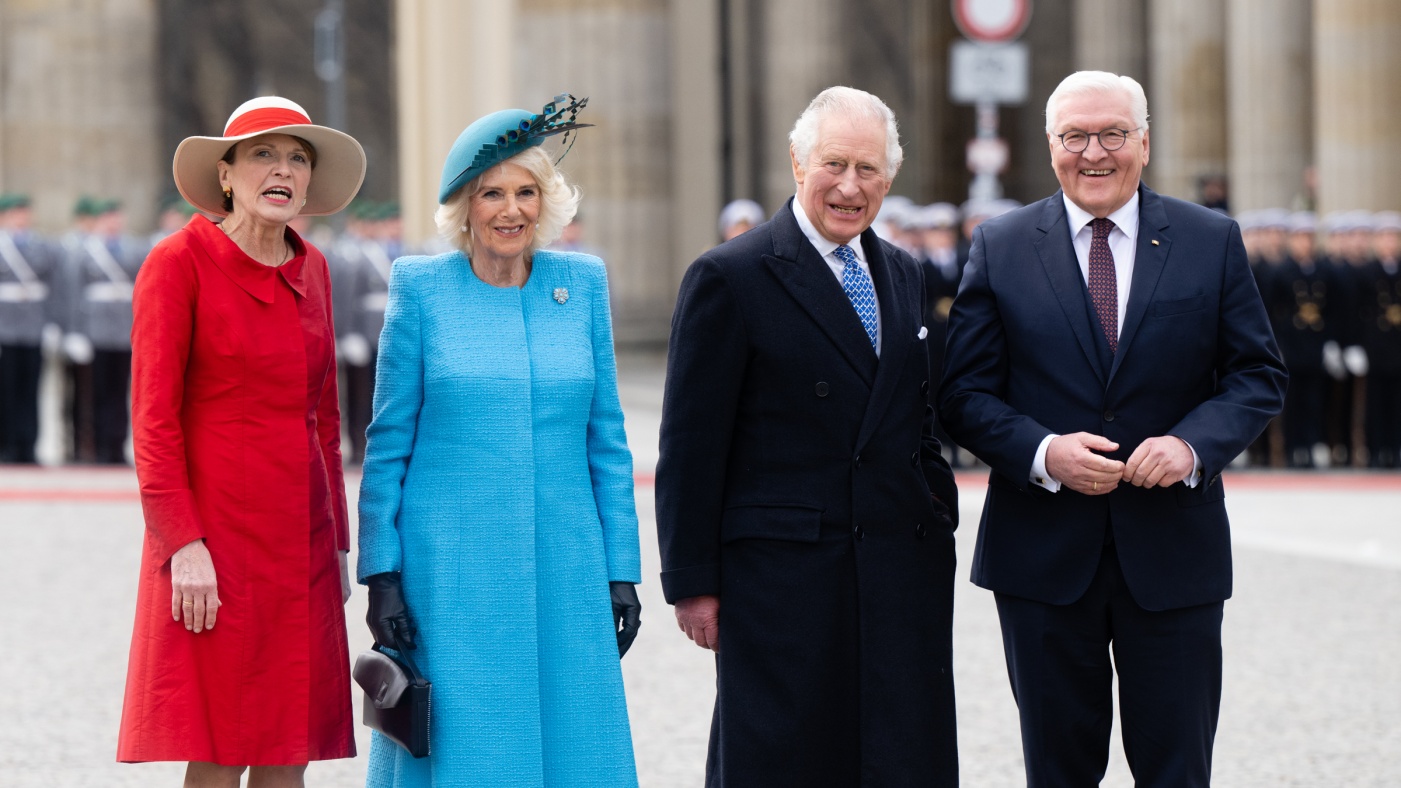
A free daily email with the biggest news stories of the day – and the best features from TheWeek.com
You are now subscribed
Your newsletter sign-up was successful
King Charles is in Germany for his first overseas state visit – which has given him the opportunity to dine with some of his more distant relatives.
At a state dinner at Schloss Bellevue in Berlin, the official residence of the German president, King Charles pledged to “strengthen the connections” between the UK and Germany.
Politicians and diplomats attended the banquet, including President Frank-Walter Steinmeier and former chancellor Angela Merkel. Three of King Charles’s German first cousins once removed were also rumoured to be in attendance: Bernhard, Philipp and Xenia.
The Week
Escape your echo chamber. Get the facts behind the news, plus analysis from multiple perspectives.

Sign up for The Week's Free Newsletters
From our morning news briefing to a weekly Good News Newsletter, get the best of The Week delivered directly to your inbox.
From our morning news briefing to a weekly Good News Newsletter, get the best of The Week delivered directly to your inbox.
Known respectively as the Margrave of Baden and the Prince and Princess of Hohenlohe-Langenburg, the small family reunion gave “a brief glimpse into the faded world of European royalty, with its tangled family trees and quadruple-barrelled names”, said The Times.
The King is said to feel a close affinity with his German ancestry, and has previously spoken about how he “cherishes” his family’s German ties, said The Telegraph.
Who are the German cousins?
The Margrave of Baden and the Prince and Princess of Hohenlohe-Langenburg are the King’s first cousins once removed on the side of his late father, Prince Philip. “In other words, they are the King’s cousins’ children”, explained The Times.
Prince Philip was a member of the House of Schleswig-Holstein-Sonderburg-Glücksburg, descendants of whom still rule Denmark and Norway. The youngest and only boy of five children, “his sisters made transcontinental connections as they married men from various houses around Europe”, said the paper.
A free daily email with the biggest news stories of the day – and the best features from TheWeek.com
Philipp and Xenia are the grandchildren of Prince Philip’s eldest sister, Margarita, and Bernhard is the grandson of another of his sisters, Princess Theodora.
Prince Philipp, the current head of the house of Hohenlohe-Langenburg, was said to be “a favourite relation of the late Queen” and was “frequently invited to Royal Ascot”, said The Times. Princess Xenia is the co-founder of Considerate Group and works in the hospitality industry.
How German is the royal family?
The British monarchy has long had ties to Germany, first “cemented” by Queen Victoria’s marriage to Prince Albert of Saxe-Coburg and Gotha, said The Telegraph.
But “the first German to ascend an English throne”, said Deutsche Welle (DW), was the German Elector George Louis of Hanover, who was proclaimed King of Great Britain in 1714, after the death of Queen Anne. He was crowned King George I.
Queen Victoria was dubbed “the grandmother of Europe” due to her efforts to ensure her children married into other European royal courts. As a result, many of her descendants, including Queen Margrethe of Denmark and Kings Harald of Norway and Carl Gustav of Sweden, sit on thrones in Europe today.
Victoria died in 1901 and was succeeded by her eldest son, Edward VII, making him “the first English king from the German dynasty of Sachsen-Coburg and Gotha”, said DW. The German name was changed to Saxe-Coburg and Gotha, which was felt to be “easier to pronounce for the English”.
In 1910, George V succeeded Edward VII as King and married Maria von Teck, who also had German ancestry, and would become known as Queen Mary.
But his reign coincided with the First World War, which was waged against his cousin, German emperor Wilhelm II. As attitudes towards Germany soured, George V changed the German family name from Saxe-Coburg and Gotha to Windsor, as did his cousin Ludwig von Battenberg, who renamed his family Mountbatten.
Prince Philip, who married George V’s granddaughter Queen Elizabeth II, was a descendant of this family. Indeed, “despite relinquishing his German title of nobility, he spoke fluent German and had predominantly German ancestors”, said DW.
“So the answer to the question ‘how German is the Royal family’ is: sehr (very),” said The Telegraph, with the King’s bloodline “made up of roughly half German ancestors”.
“The person who is the last in line in the succession to the throne is actually a German,” added DW. “Hospital therapist Karin Vogel, who lives in Rostock, is a descendant of Sophia of Hanover, the mother of King George I, the first British king from Germany,” said the news site.
But it’s “extremely unlikely that she would become queen of England one day”, added DW, as “nearly 5,000 people in the royal lineage would need to die before that can happen”.
-
 How the FCC’s ‘equal time’ rule works
How the FCC’s ‘equal time’ rule worksIn the Spotlight The law is at the heart of the Colbert-CBS conflict
-
 What is the endgame in the DHS shutdown?
What is the endgame in the DHS shutdown?Today’s Big Question Democrats want to rein in ICE’s immigration crackdown
-
 ‘Poor time management isn’t just an inconvenience’
‘Poor time management isn’t just an inconvenience’Instant Opinion Opinion, comment and editorials of the day
-
 Will Beatrice and Eugenie be dragged into the Epstein scandal?
Will Beatrice and Eugenie be dragged into the Epstein scandal?Talking Point The latest slew of embarrassing emails from Fergie to the notorious sex offender have put her daughters in a deeply uncomfortable position
-
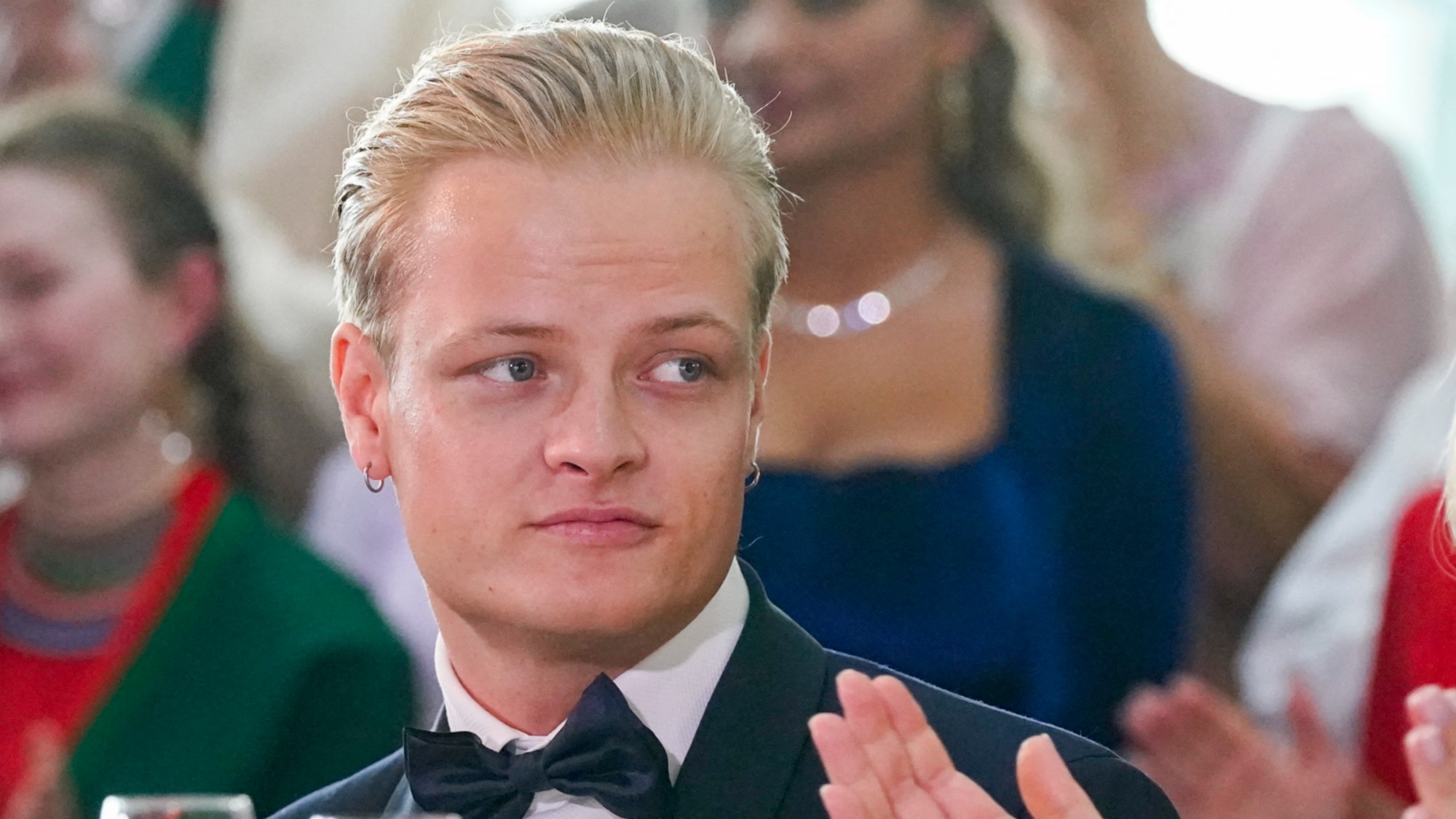 Norway’s scandal-hit royals
Norway’s scandal-hit royalsIn the Spotlight Rape trial of Marius Borg Høiby, son of the crown princess, adds to royal family's ‘already considerable woes’
-
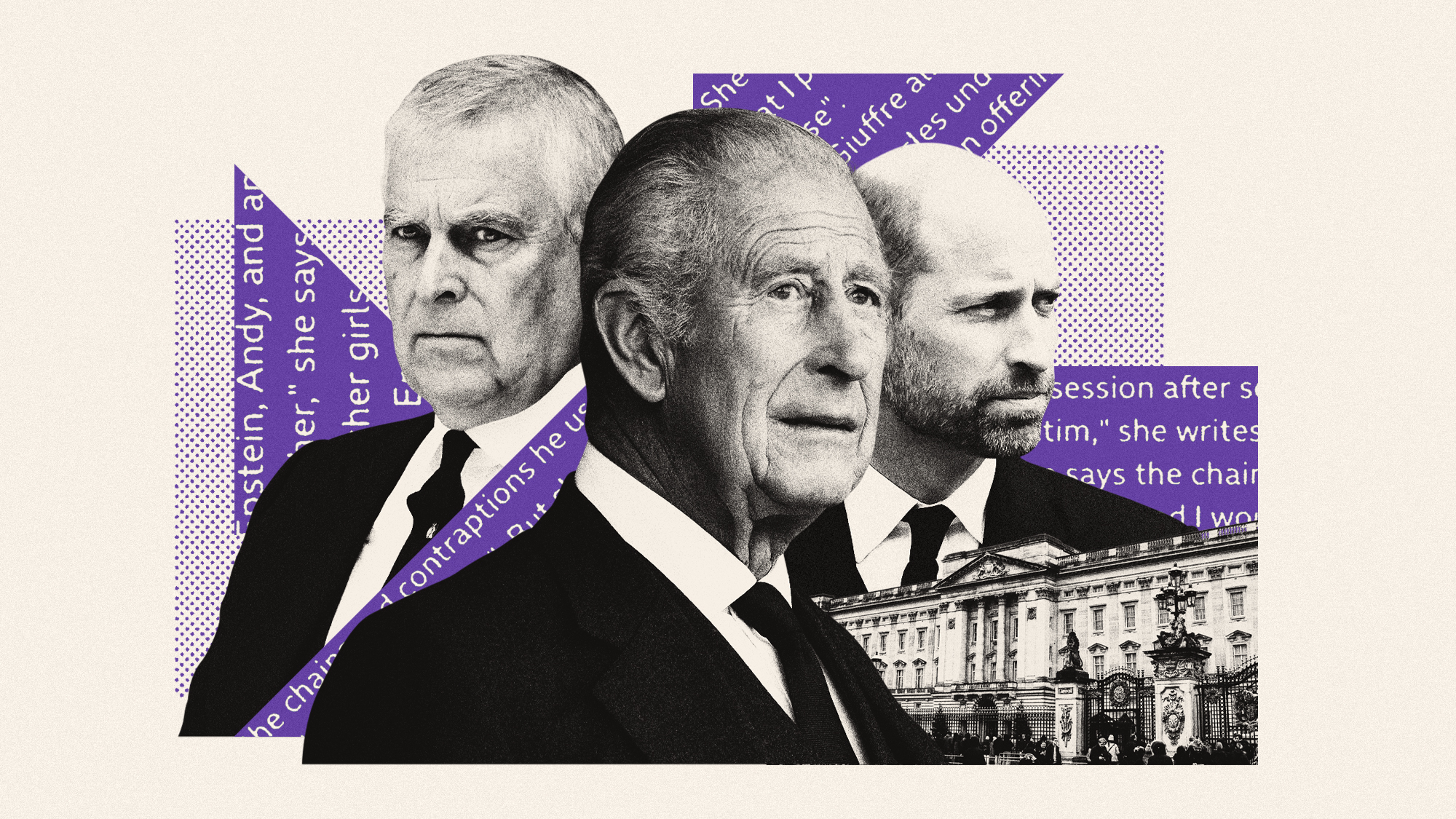 Prince Andrew: is the royal family doing enough?
Prince Andrew: is the royal family doing enough?Today’s Big Question King Charles faces calls for tougher action against Andrew after latest allegations about Virginia Giuffre and Jeffrey Epstein
-
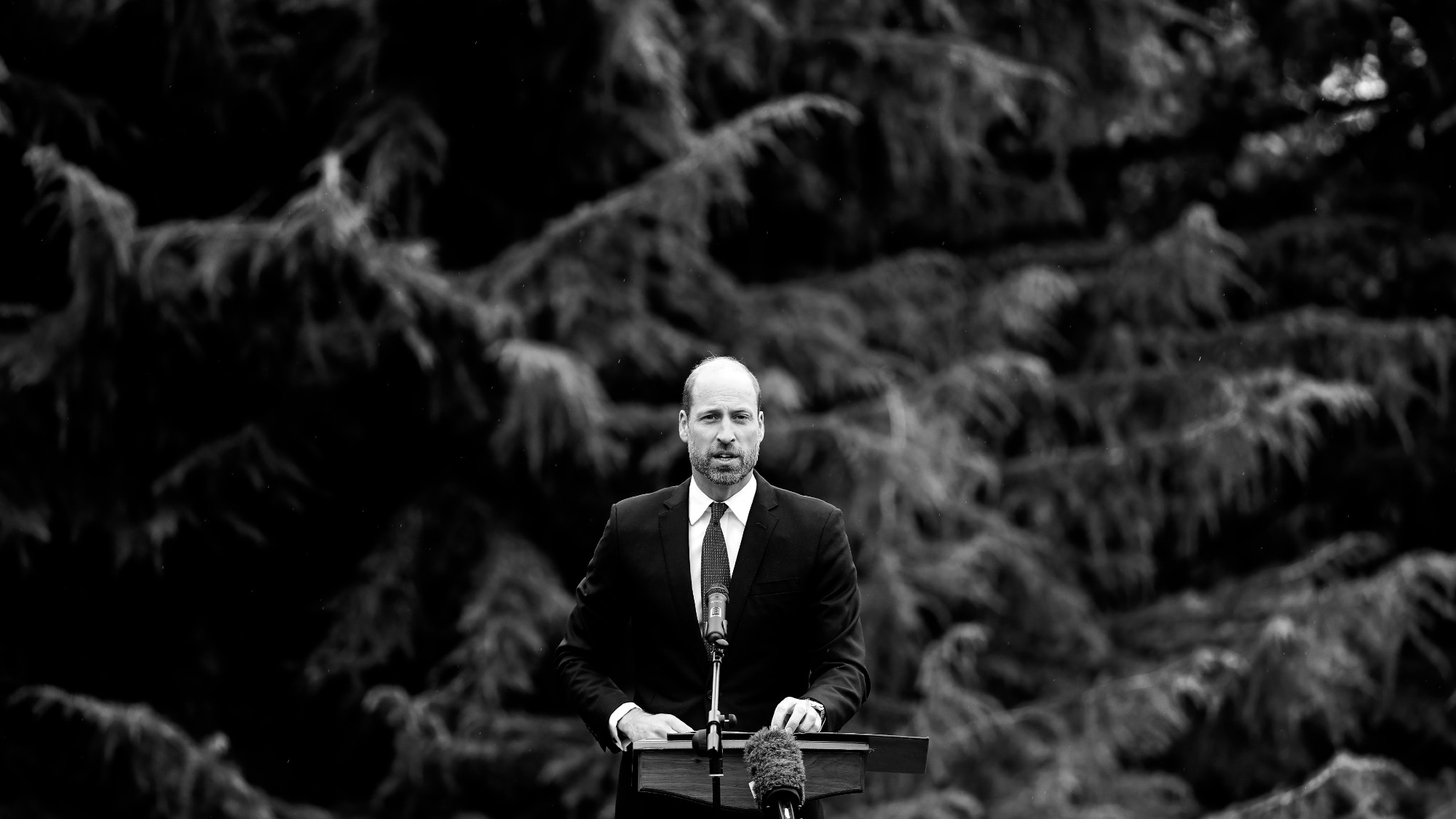 What will William be like as king?
What will William be like as king?Today's Big Question Prince of Wales said he won’t be ‘restricted’ by history when he takes the throne
-
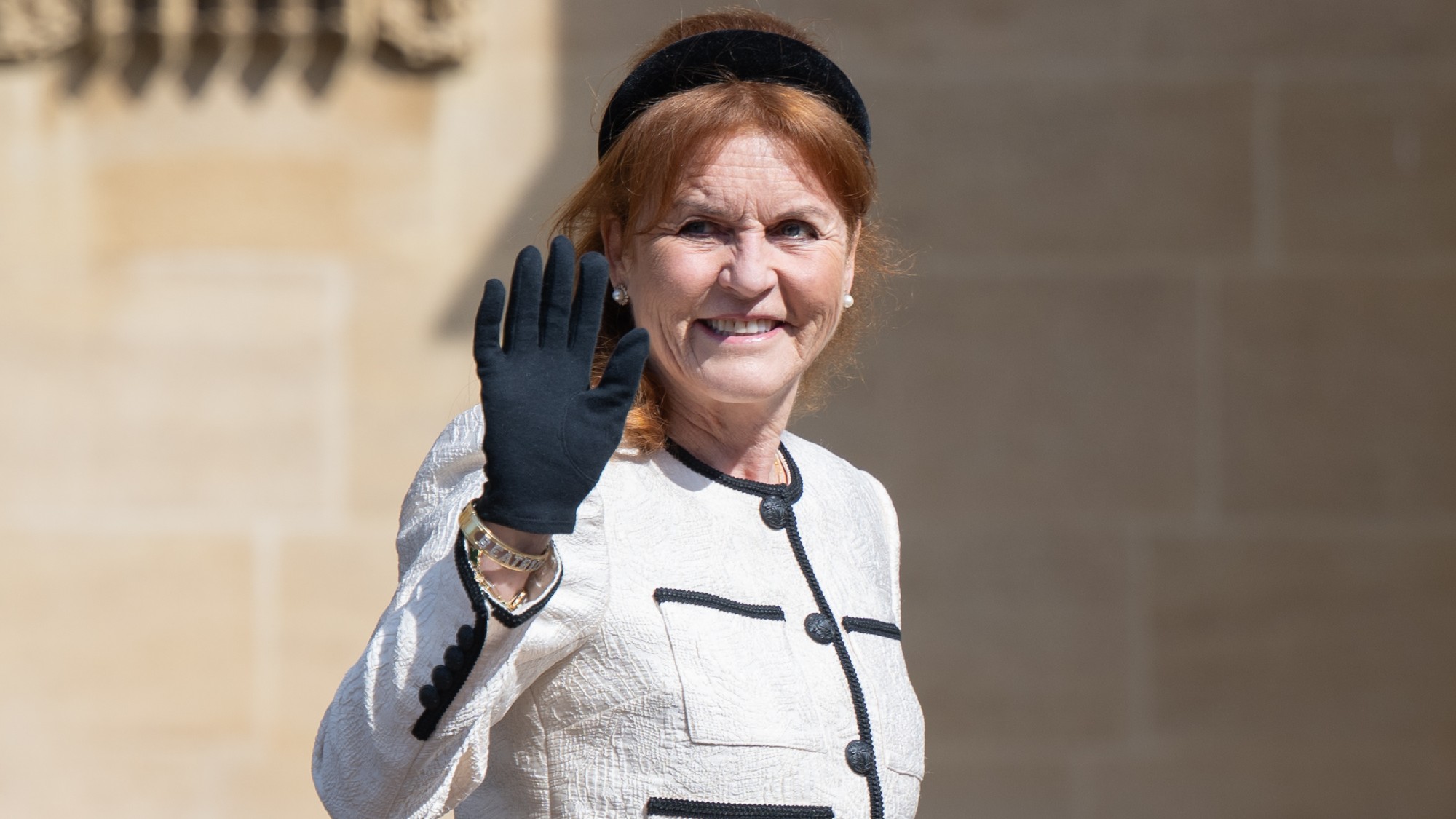 Sarah Ferguson: a reputation in tatters
Sarah Ferguson: a reputation in tattersIn the Spotlight After emails surfaced revealing ties to Jeffrey Epstein, weeks after she claimed to cut contact, her charities are running for the hills
-
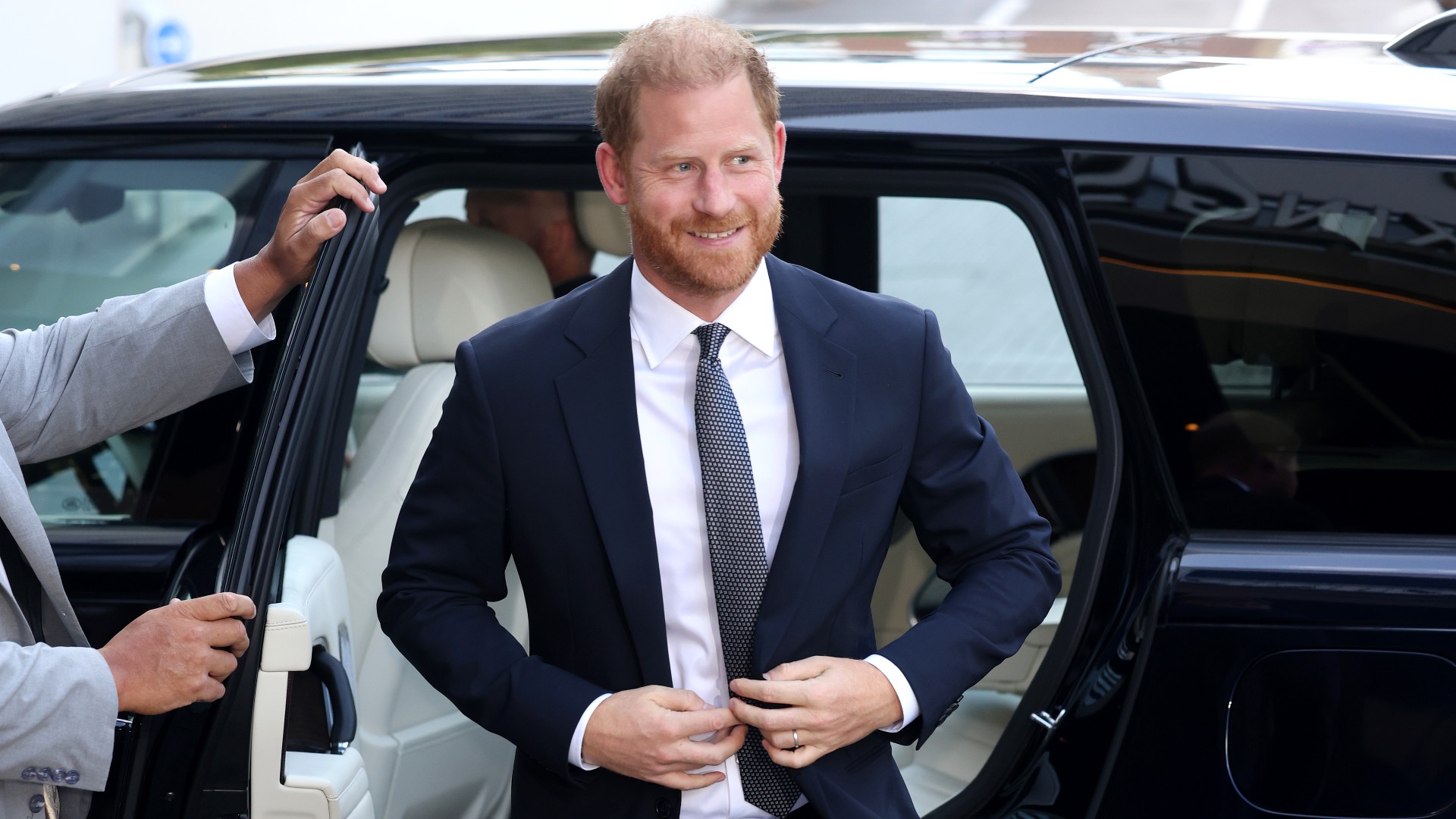 Prince charming: Harry’s tea with King sparks royal reconciliation rumours
Prince charming: Harry’s tea with King sparks royal reconciliation rumoursTalking Point Are the royals – and the UK public – ready to welcome the Duke of Sussex back in?
-
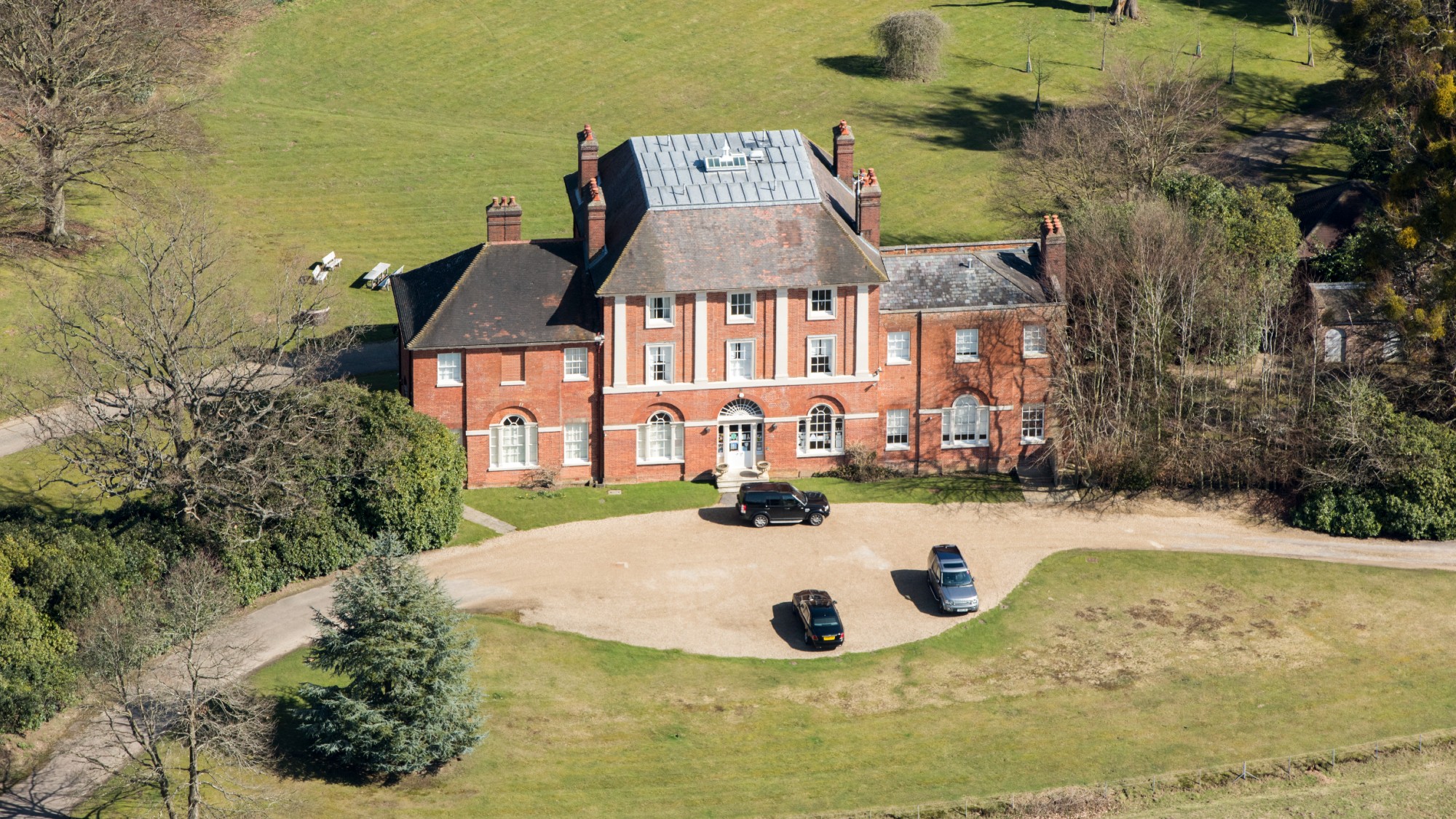 Forest Lodge: William and Kate's new home breaks with royal tradition
Forest Lodge: William and Kate's new home breaks with royal traditionIn the Spotlight Wales' said to hope move to 'forever home' in Windsor Great Park will 'leave unhappy memories behind'
-
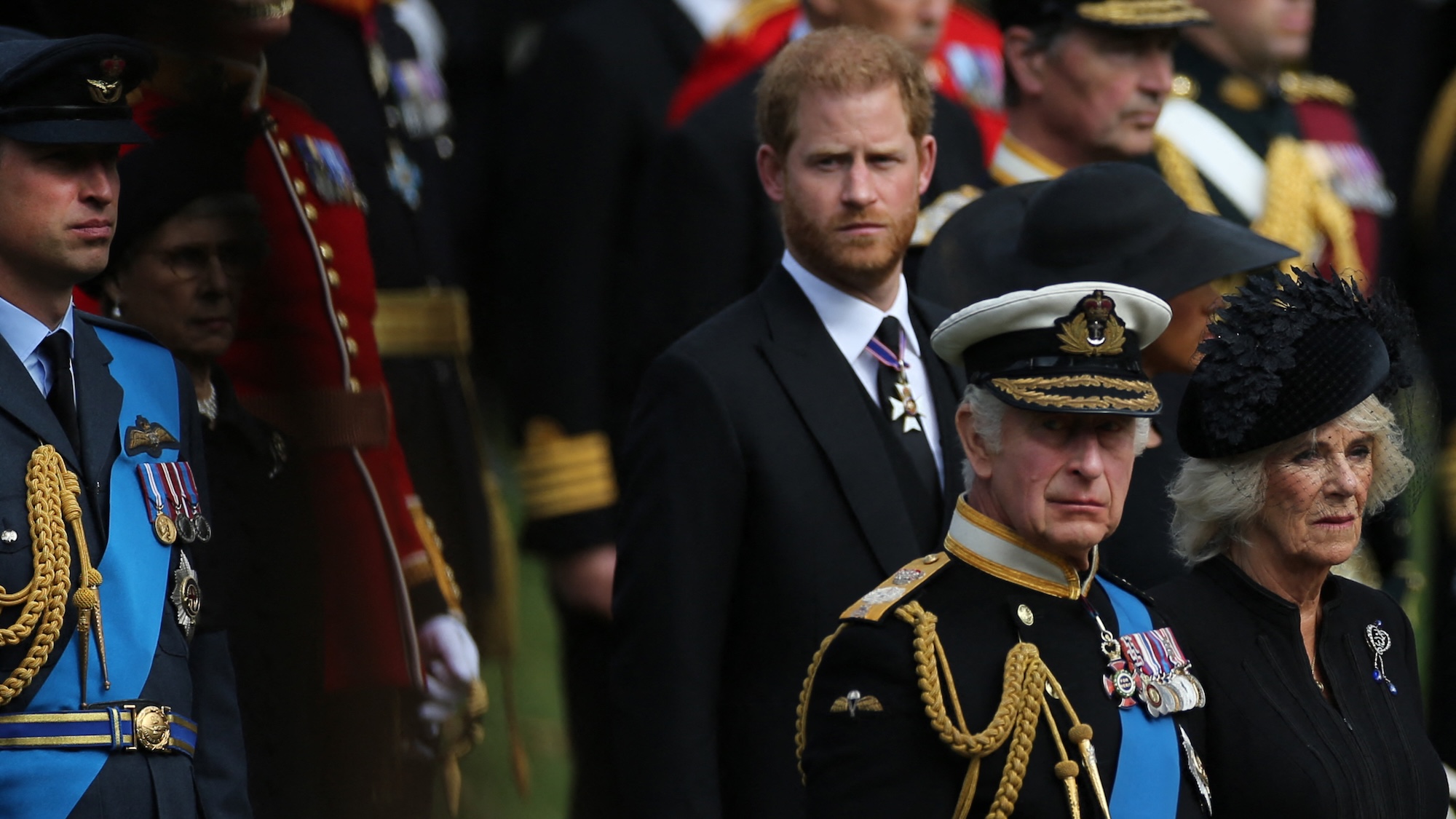 King Charles and Prince Harry: peace in our time?
King Charles and Prince Harry: peace in our time?Talking Point Leaked images of a secret meeting between royal aides suggest a dialogue is beginning to open up